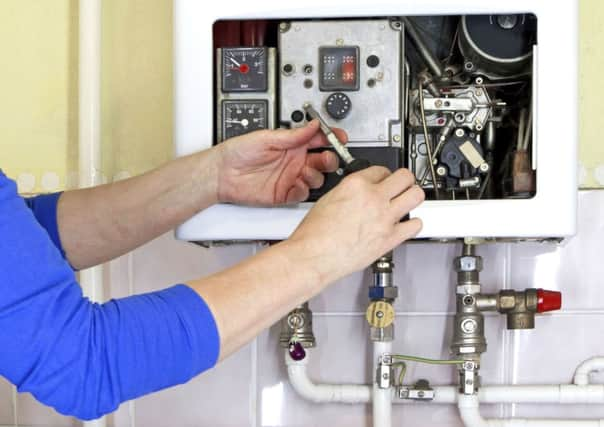The heat is on


Replacing it with an A-rated condensing boiler could make your heating system 90% efficient - that’s quite a jump.
But while this upgrade can clearly make such a difference to how well your home’s heating (and hot water system) works, it isn’t a cheap option. So if you don’t have the spare funds, how else can you get more from your radiators?
Advertisement
Hide AdAdvertisement
Hide AdIf the radiators aren’t as powerful as you’d like, the first thing to do is bleed them. Radiators containing trapped air are hot at the bottom but cold further up, so they’re not giving off as much heat as they could. Bleeding them is easy - simply put a radiator key or small screwdriver (depending on the type of hole) into the bleed valve on the radiator and open the valve to let out the air. This basic measure will really improve how hot the radiator gets.
Another reason a radiator might be inadequate is if it’s not powerful enough for the room, or you need more than one. Radiator output is measured in btus (British thermal units) and to work out the btus required to heat a room, ask a plumber or use an online btu calculator. Calculators vary, but they should factor in the dimensions of the room, the type of room (living rooms should be warmer than bedrooms, for example) and things like the number of outside walls and the type of glazing. Some btu calculators take into account more factors than others, so you may get different results, or they may give a range of btus for the room, rather than one figure.
The position of the radiators can also affect how well they work. You don’t, for example, want a radiator heating the back of a sofa, rather than the room. If you can’t move the sofa, perhaps due to space constraints, it’s a good idea to move the radiator or swap a horizontal radiator for a vertical one, which will take up less space at sofa level.
Replacing old radiators may be something you want to do anyway. Modern radiators tend to be smaller but with the same, or a greater, output than your old ones, thanks to improved radiator technology and materials.
Advertisement
Hide AdAdvertisement
Hide AdOld heating systems often lack adequate controls, such as adjustable radiator valves, so you can’t turn down the radiators in rooms where you don’t need them on full power, or on at all.
You’ll need the right controls for the boiler too, as the wrong ones can considerably diminish its performance and efficiency. And with a new boiler especially, that’s the last thing you need.